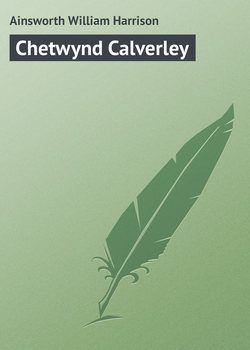Читать книгу Chetwynd Calverley - Ainsworth William Harrison - Страница 16
BOOK THE FIRST – MILDRED
VIII. BRACKLEY HALL
ОглавлениеCaptain Danvers lias already been described as a handsome young man of about five-and-twenty, and it may now be added that he was tall, well-made, and had marked features – the manly character of his physiognomy being heightened by his brown moustaches.
A dark velveteen shooting-coat, boots of supple leather, that ascended to the knee, where they were met by a pair of knickerbockers – loose, Dutch-looking trousers – formed his costume, while his brown curling locks were covered by a black felt hat. Such as it was, the dress suited him, and both ladies thought it very becoming.
Captain Danvers was in a cavalry regiment, which was quartered at Madras, and he had recently come home on leave. His father, Sir Gerard Danvers, resided at Offham Court, in Kent, and was thought very wealthy. Unluckily Charles Danvers was not an eldest son.
The party had now entered the park, and were proceeding along a fine avenue leading to the house, which stood right in front of them.
Brackley Hall, which was in admirable preservation considering its great antiquity, dated back to the period of Edward the Fourth, or even earlier.
Constructed almost entirely of timber and plaster, it was remarkable for the singularity of its form. It was only three storeys high, the upper storey projecting far beyond the lower, but the summit of the building was occupied by a lofty gallery, more than a hundred feet in length, that looked externally like a lantern, since it had continuous ranges of windows on every side.
Most curious was the timber-work, the gables and lintels being richly carved, as was the porch. The immense bay windows, which constituted the chief beauty of the house, were framed with heavy transom bars, and exquisitely latticed.
In the court-yard was a chapel, surmounted in olden times by a tall, square tower, but this had been taken down.
The hall was surrounded by a moat, and approached by a wide stone bridge. Another bridge communicated with the gardens, which were extensive, and laid out in a quaint, formal style, with terraces, stone steps, fountains, quincunxes, clipped yew-trees, alleys, and a bowling-green. We must not omit to mention that the old mansion had the reputation of being haunted.
Adjoining the house was a grove of noble elms, wherein a colony of rooks had been settled for centuries.
About half a mile off, at the rear of the mansion, was a small lake, or mere, remarkable for the blackness of its water. But black as was the mere, it abounded with fish, and at certain times of the year was a great resort of wild fowl.
Captain Danvers had sent on his groom to the hall to inform Sir Leycester and Lady Barfleur that Mrs. Calverley was coming on to call on them, and also to explain what had occurred.
Consequently, when the ladies had crossed the bridge and entered the court, they found Sir Leycester and Lady Barfleur, with the fair Emmeline, waiting to receive them, and they had no sooner alighted than they were overwhelmed with expressions of sympathy. Some of the servants who were assembled in the court seemed likewise greatly excited.
Sir Leycester, an old fox-hunter and rather choleric, was excessively wroth, and vowed he would never rest till he had caught the rascals. He had no idea whatever, he said, that the country was infested with such vermin, but catch them he would. Mrs. Calverley endeavoured to dissuade him from his purpose, but in vain. “I only waited to see you, or I should have been off before,” he said. “You’ll excuse me quitting you so abruptly, since I am going on your business.”
“But I’d much rather you didn’t go, Sir Leycester,” said Mrs. Calverley. “I’m afraid the gipsies may offer a desperate resistance.”
“I’m sure they will,” added Mildred.
“No matter; I’ll have them!” rejoined Sir Leycester.
“If you really are going on this gipsy-hunt, my dear uncle, I’ll go with you,” said Captain Danvers.
“No, no; I don’t want you, Charles,” rejoined Sir Leycester. “Remain with the ladies. You must stay till I return, my dear Mrs. Calverley.”
She promised that she would; and, after a word or two with Lady Barfleur, he proceeded to the stables, and ordered a hunter to be saddled immediately. He also told Booth, the coachman, on whom he could place reliance, that he should require him and a couple of grooms to attend him.
While the horses were being saddled, a footman brought a brace of pistols, which Sir Leycester had sent for.
Armed with these, and accompanied by Booth, and one of his own grooms, together with his nephew’s groom, Tom, he set out on the expedition, shaping his course towards the further side of the morass, where he expected to find some traces of the robbers.
